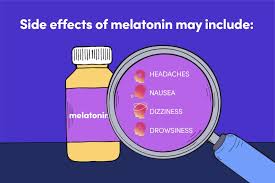The Importance of Psychiatric Centers in Mental Health Care
Psychiatric centers play a crucial role in providing specialized care and treatment for individuals facing mental health challenges. These centers are dedicated facilities staffed with trained professionals who offer a range of services to support patients in managing their mental health conditions.
One key aspect of psychiatric centers is their ability to provide comprehensive assessments and diagnoses for various mental health disorders. Through thorough evaluations conducted by psychiatrists and psychologists, patients can receive accurate diagnoses that form the basis for personalized treatment plans.
Furthermore, psychiatric centers offer a safe and supportive environment for individuals in crisis. Patients experiencing acute symptoms or facing mental health emergencies can receive immediate care and stabilization at these facilities, helping prevent further escalation of their condition.
In addition to crisis intervention, psychiatric centers also provide ongoing treatment and therapy for individuals with chronic mental health conditions. This may include medication management, individual counseling, group therapy sessions, and other evidence-based interventions tailored to each patient’s needs.
Collaboration with other healthcare providers is another vital function of psychiatric centers. By working closely with primary care physicians, social workers, therapists, and community resources, these centers ensure that patients receive holistic care that addresses both their mental health and overall well-being.
Overall, psychiatric centers serve as essential hubs for mental health care delivery, offering specialized services that help individuals navigate the complexities of mental illness. By providing assessment, crisis intervention, ongoing treatment, and collaborative care coordination, these facilities play a critical role in supporting the recovery and well-being of those struggling with mental health challenges.
Top 8 Benefits of Choosing a Psychiatric Center for Mental Health Care
- Specialized care for mental health conditions
- Professional assessment and diagnosis by trained psychiatrists and psychologists
- Safe environment for individuals in crisis or facing mental health emergencies
- Comprehensive treatment plans tailored to individual needs
- Access to medication management and therapy services
- Supportive staff trained to handle various mental health challenges
- Collaboration with other healthcare providers for holistic care approach
- Promotion of recovery and well-being through evidence-based interventions
Challenges of Psychiatric Centers: Addressing Stigma, Cost, and Limited Resources
Specialized care for mental health conditions
One significant advantage of psychiatric centers is their ability to provide specialized care tailored to individuals with mental health conditions. Through the expertise of trained professionals such as psychiatrists, psychologists, and therapists, patients receive targeted treatment that addresses their specific needs and challenges. This personalized approach ensures that individuals receive the most effective interventions and support to manage their mental health conditions, leading to improved outcomes and enhanced well-being.
Professional assessment and diagnosis by trained psychiatrists and psychologists
One significant benefit of psychiatric centers is the provision of professional assessment and diagnosis by trained psychiatrists and psychologists. These specialized professionals conduct thorough evaluations to accurately diagnose various mental health disorders, enabling them to create personalized treatment plans tailored to each individual’s specific needs. Their expertise and experience ensure that patients receive precise diagnoses, leading to effective interventions and support in managing their mental health conditions. This professional assessment and diagnosis form a crucial foundation for the comprehensive care provided by psychiatric centers, ultimately promoting better outcomes and improved well-being for those seeking mental health support.
Safe environment for individuals in crisis or facing mental health emergencies
Psychiatric centers provide a safe environment for individuals in crisis or facing mental health emergencies, offering immediate care and support to those experiencing acute symptoms. This secure setting allows patients to receive prompt intervention and stabilization, helping to prevent further escalation of their condition. By creating a space where individuals can feel safe and supported during times of crisis, psychiatric centers play a vital role in ensuring the well-being and recovery of those in need of urgent mental health care.
Comprehensive treatment plans tailored to individual needs
Psychiatric centers excel in providing comprehensive treatment plans that are specifically tailored to meet the unique needs of each individual. By conducting thorough assessments and understanding the specific challenges and goals of the patient, these centers can develop personalized treatment strategies that address the root causes of mental health issues. This individualized approach ensures that patients receive targeted interventions, such as therapy modalities, medication management, and lifestyle adjustments, that are most effective for their well-being and recovery. By focusing on personalized care, psychiatric centers help individuals achieve better outcomes and improve their overall mental health and quality of life.
Access to medication management and therapy services
Psychiatric centers provide a valuable pro through their access to medication management and therapy services. These centers offer patients the opportunity to receive comprehensive care that includes the prescription, monitoring, and adjustment of psychiatric medications to effectively manage their mental health conditions. Additionally, therapy services such as individual counseling and group therapy sessions are available to support patients in addressing underlying issues, developing coping strategies, and fostering emotional well-being. This integrated approach to treatment ensures that individuals receive holistic care that addresses both the biological and psychological aspects of their mental health, leading to improved outcomes and quality of life.
Supportive staff trained to handle various mental health challenges
Psychiatric centers offer a valuable pro in their supportive staff who are extensively trained to handle a wide range of mental health challenges. These professionals possess the expertise and skills necessary to provide compassionate care, effective interventions, and personalized support to individuals facing mental health issues. Their training equips them to understand the complexities of different mental health conditions, offer evidence-based treatments, and create a safe and nurturing environment for patients to seek help and healing. The presence of such dedicated and knowledgeable staff members enhances the quality of care and promotes positive outcomes for individuals receiving treatment at psychiatric centers.
Collaboration with other healthcare providers for holistic care approach
One significant advantage of psychiatric centers is their emphasis on collaborating with other healthcare providers to ensure a holistic care approach for patients. By working closely with primary care physicians, therapists, social workers, and community resources, psychiatric centers can address not only the mental health needs of individuals but also their overall well-being. This collaborative effort allows for a comprehensive assessment of patients’ physical, emotional, and social factors, leading to more effective and personalized treatment plans that consider the individual as a whole.
Promotion of recovery and well-being through evidence-based interventions
Psychiatric centers excel in promoting recovery and well-being through evidence-based interventions. By utilizing proven treatment modalities backed by scientific research, these centers offer patients the best possible chance for improvement and healing. Whether through medication management, cognitive-behavioral therapy, group counseling, or other evidence-based interventions, psychiatric centers prioritize the use of strategies that have demonstrated effectiveness in addressing mental health conditions. This commitment to evidence-based care ensures that patients receive treatment approaches that are tailored to their specific needs and have a higher likelihood of leading to successful outcomes, ultimately supporting their journey toward recovery and overall well-being.
Stigma
Psychiatric centers face the con of stigma, as they may still carry a social stigma that deters some individuals from seeking help for their mental health issues. The fear of judgment or discrimination associated with psychiatric care can prevent people from accessing the support and treatment they need. This stigma can create barriers to seeking help, perpetuating misconceptions about mental health and hindering individuals from receiving the care that could greatly benefit their well-being. Efforts to reduce stigma and promote understanding around mental health are crucial in ensuring that all individuals feel comfortable and empowered to seek help when needed.
Cost
Accessing care at psychiatric centers can be a significant financial burden for individuals, particularly for those lacking sufficient insurance coverage. The high costs associated with psychiatric services can create barriers to access and affordability, leaving some patients unable to receive the care they need. This financial strain can exacerbate mental health challenges for vulnerable populations, highlighting the inequities in mental health care provision. Addressing the issue of cost is crucial to ensure that all individuals have equal opportunities to receive quality mental health treatment and support.
Limited Resources
Limited Resources: Due to high demand and limited funding, psychiatric centers may face challenges in providing timely appointments and comprehensive services to all patients in need. This can result in long waiting lists for appointments, limited availability of specialized treatments, and constraints on staffing and resources. As a consequence, some individuals may experience delays in receiving the care they require, potentially exacerbating their mental health conditions and leading to increased distress. The scarcity of resources within psychiatric centers underscores the importance of continued advocacy for increased funding and support for mental health services to ensure that all individuals have access to timely and effective care.


